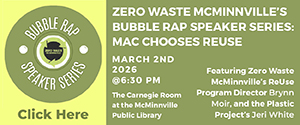Buffington: It's up to the local press to hold police accountable
In a lot of ways, reporters and cops walk the same beat. We both deal with people complaining and often see people at their worst moments instead of their best.
We’re both deeply rooted institutions in the community, and in different ways, seek to find order amid chaos. We both hold, or should hold, the rule of law and freedom in high esteem. And we both work crazy hours at low pay to do jobs that the public often doesn’t understand.
Yet, as reporters, we often find ourselves at loggerheads with law enforcement. We’ve seen that in real time where reporters covering a protest get accosted or arrested by police under some vague pretense.
Even in our local communities, we sometimes get crossways with the cops we cover. I once had a cop threaten to lock me up while photographing a wreck for — no kidding — standing too close to a fire truck that wasn’t being used at the scene.
More recently, I caught hell from area law enforcement folks who didn’t like a headline on a story we ran about a cop who was killed in a wreck. It seems he had been notable some years ago as a whistleblower in a local town political scandal, something that was reflected in the headline.
The disputes between local newspapers and local sheriffs are the stuff of legend. In Georgia, the county sheriff is one of the three public officials who designate the newspaper of record in the county to publish public notices.
It’s not uncommon here for an angry sheriff to try and take away public notices from a newspaper as an act of retribution for news coverage he didn’t like. The disputes between law enforcement and the press appear to have gotten more intense since the start of the Black Lives Matter movement.
The public has largely become polarized about law enforcement as aBlue Lives Matter counter-movement took hold psychologically, if not in reality.
To a lot of people, you’re either for the cops or against them. Any criticism of policing, no matter how benign, is seen by some as anti-cop rhetoric.
That makes it difficult for newspapers to do their jobs effectively when questioning the police is a taboo subject.
We’ve heard about some of that amid the uproar in Uvalde, Texas, following the mass shooting there at an elementary school.
As with many major tragedies, Uvalde was invaded by a swarm of major media outlets, many of whom questioned why the local police didn’t rush in and stop the shooting. Some locals reportedly didn’t like that question and have shown a deep level of disdain toward some of the reporters covering Uvalde.
But it’s notable that the local newspaper, the Uvalde Leader-News,has also raised questions about the local police response. A June 5 editorial in the Leader-News was titled, “Delay may be darkest hour ever.”
If you haven’t read it, do so. It’s a great piece of writing. All of which points out that it’s the questions asked by the local press that will matter most in the long run.
Amid the emotions of a huge tragedy, it’s not surprising that there would be some backlash against the army of reporters camped out in a small town. But long after those reporters have gone, the local newspaper will still be there covering Uvalde and following up on a story that will soon fade from national headlines.
It won’t be CNN that holds the local Uvalde Police Department or school police force accountable. It will be the Leader-News.
(And by the way, a staff member of the Leader-News lost a child in the shooting, a tragedy I can’t begin to comprehend.)
I’ve never been a big fan of the 1990s newspaper trend of “community building.” I don’t believe that’s our role in a community.
I’ve said this before:
We’re not the architects of the house, nor the bricklayer, nor the painter, nor the landscaper. We’re the ones standing in the street writing if the house is leaning, or is leaking or is ugly. It’s up to others to shore up the foundation, patch the roof and repaint.
That includes coverage of local law enforcement, too.
In most of our communities, law enforcement is the most expensive area in local governments. And inherently, law enforcement officials have vast powers over the lives of others, for good or bad.
There are few, if any, outside institutions that will hold law enforcement officials accountable.
To a large extent, the only institution that can hold cops accountable is the press, through our willingness to ask tough questions and push for transparency. It’s what we do even if the public doesn’t always understand it.
Mike Buffington, a partner in Mainstreet Newspapers, based in Jefferson, Georgia, is just wrapping up a term as president of the International Society of Weekly Newspaper Editors. He can be reached at mike@mainstreetnews.com.













Comments